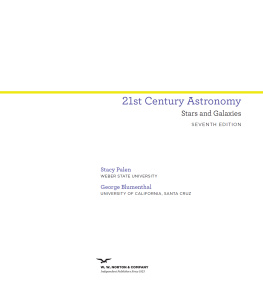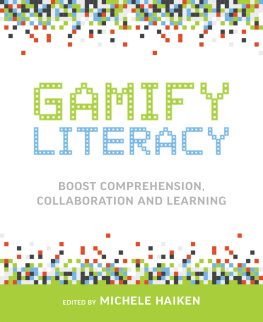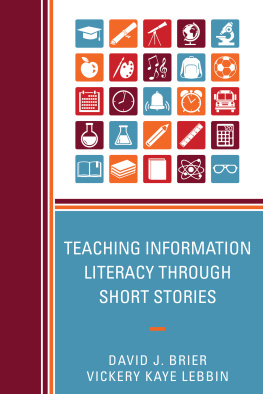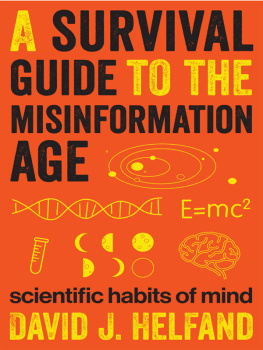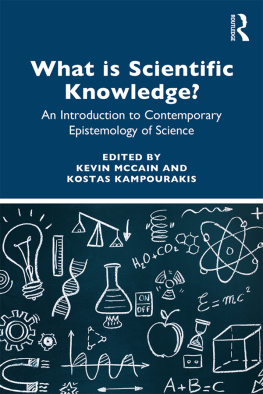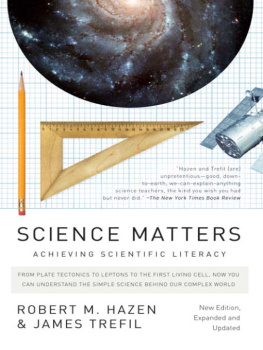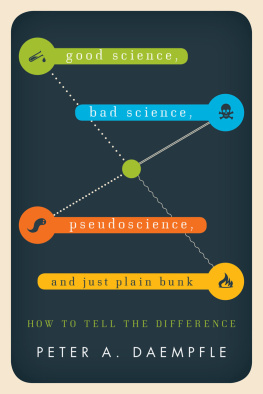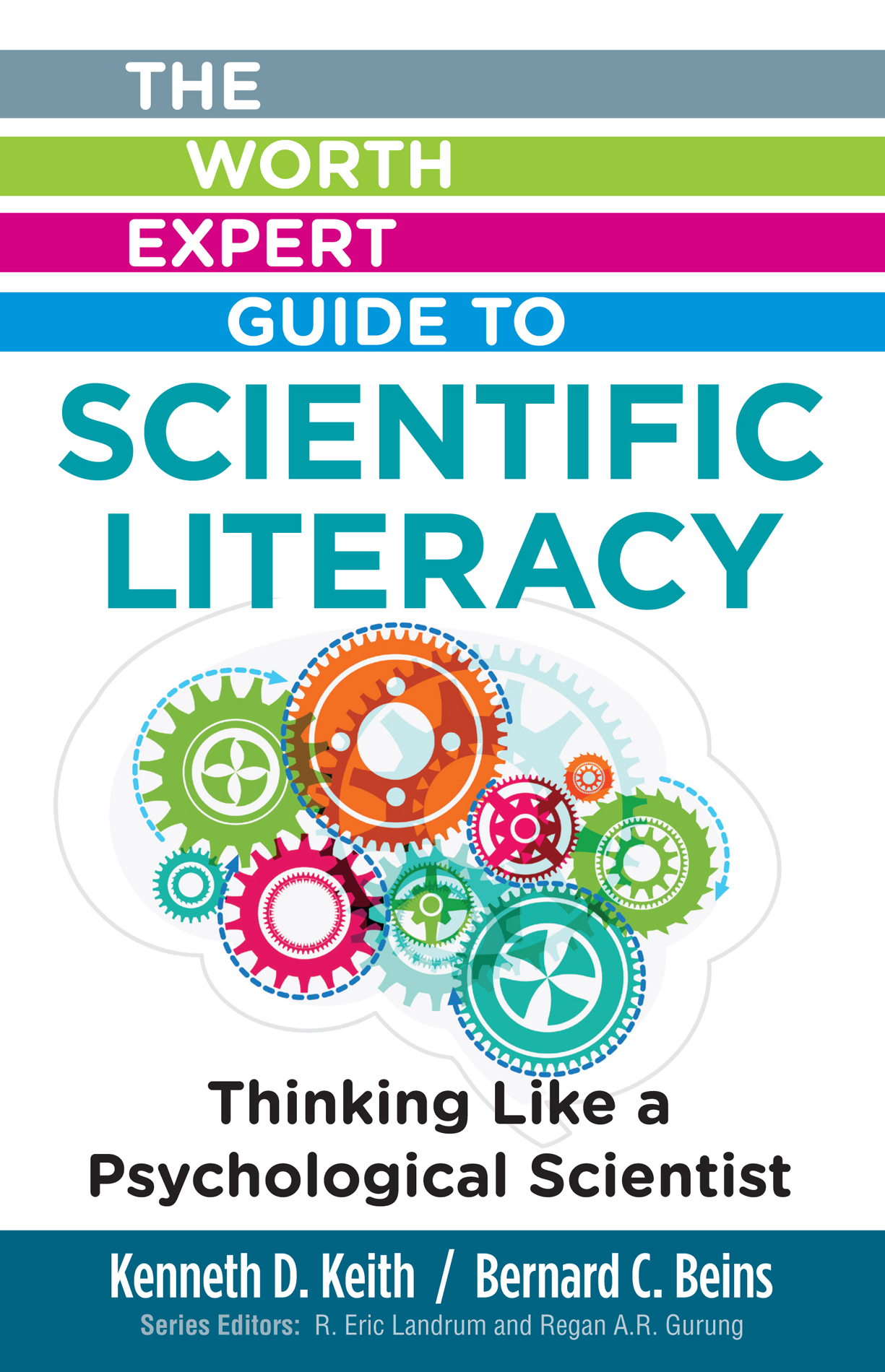Contents
The Worth Expert Guide to
Scientific Literacy
Thinking Like a Psychological Scientist
Kenneth D. Keith
University of San Diego
Bernard C. Beins
Ithaca College
Series Editors
R. Eric Landrum
Boise State University
Regan A.R. Gurung
University of WisconsinGreen Bay

Vice President, Social Science and High School: Charles Linsmeier
Executive Editor: Christine Cardone
Editorial Assistant: Melissa Rostek
Executive Marketing Manager: Katherine Nurre
Marketing Assistant: Morgan Ratner
Director, Content Management Enhancement: Tracey Kuehn
Managing Editor, Sciences and Social Sciences: Lisa Kinne
Project Editor: Kevin Bradley, Jouve
Senior Production Supervisor: Paul W. Rohloff
Senior Photo Editor: Cecilia Varas
Director of Design, Content Management: Diana Blume
Senior Design Manager and Cover Design: Blake Logan
Interior Design: Patrice Sheridan
Art Manager: Matthew McAdams
Composition: Jouve
Printing and Binding: RR Donnelley
Cover Art: P2007/Getty Images
Library of Congress Control Number: 2016938723
ISBN-13: 978-1-319-11299-8
Copyright 2017 by Worth Publishers
All rights reserved
Printed in the United States of America
First printing
Worth Publishers
One New York Plaza
Suite 4500
New York, NY 10004-1562
www.macmillanlearning.com
To my grandchildren Samuel, Sophia, and Jamie. May they contribute to a world made better by science and reason.
K.D.K.
To my wonderful grandchildren Evie and Julian, with the hope that they will grow up in a world filled with critical thinkers who work for the betterment of all people.
B.C.B.
About the Authors
Kenneth D. Keith is professor emeritus of psychological sciences at the University of San Diego, where he has taught courses in introductory psychology, cross-cultural psychology, and research methods. His research and writing encompass cross-cultural psychology, quality of life, intellectual disability, and the teaching of psychology. He is author or editor of more than 150 scientific and professional publications. He has been advisor for many award-winning student research presentations at a variety of regional and national meetings.
Keiths books include Cross-Cultural Perspectives on Quality of Life (with Robert Schalock), the Student Handbook to Psychology: History, Perspectives, and Applications, Cross-Cultural Psychology: Themes & Perspectives, Intellectual Disability: Ethics, Dehumanization, and a New Moral Community (with Heather Keith), The Encyclopedia of Cross-Cultural Psychology , and Cross-Cultural Quality of Life: Enhancing the Lives of People with Intellectual Disability (with Robert Schalock).
He is a Fellow of the American Psychological Association, Association for Psychological Science, and Western Psychological Association. At the University of San Diego, he received the Davies Award for Excellence in Teaching and the Outstanding Preceptor Award for superior performance in teaching and advising. In 2016, he became president-elect of the Society for the Teaching of Psychology.
Bernard (Barney) C. Beins is professor of psychology at Ithaca College, where he has taught since 1986. His teaching focuses on the development of critical thinking skills in his students. His scholarship includes research on humor and on the scholarship of teaching and learning. He has authored or coedited over 30 books and teaching manuals and over 130 refereed articles, book chapters, encyclopedia entries, reviews, and commentaries. He has overseen more than 100 student presentations for which his students have won multiple awards.
His books include Research Methods: A Tool for Life, APA Style Simplified, Effective Writing in Psychology (with Agatha Beins), Successful Research Projects , and Research Methods and Statistics (with Maureen McCarthy).
Beins was the 2010 recipient of the Charles L. Brewer Distinguished Teaching Award from the American Psychological Foundation and received the Ithaca College Faculty Excellence Award. He is a Fellow of the Association for Psychological Science, four APA divisions, and the Eastern Psychological Association. He has been president of the Society for the Teaching of Psychology and the New England Psychological Association. He has served on APAs Council of Representatives and Board of Educational Affairs, and he was the inaugural director of APAs Office of Pre-College and Undergraduate Education.
Brief Contents
Preface
We encounter an abundance of complex, scientific information in our world, and such knowledge will only increase in the future. As a result, we will continue to face the challenge of interpreting and understanding new knowledge and considering how we can make good decisions as we navigate through our lives and our environment. Adopting a critical frame of mind is the first step toward helping us figure things out. In this sense, the word critical doesnt mean quite the same thing as in ordinary conversation. In many aspects of everyday life, being critical is a negative thing. But in thinking about how we think, being critical implies that we subject what we encounter to scrutiny to make sure that it makes sense.
This approach forms the essence of scientific literacy, which involves understanding the concepts and processes involved in generating scientific knowledge. That is, we not only need to know facts but also what those facts mean and how scientists generated such new knowledge. If we dont understand the scientific process, it will be impossible to judge whether we can believe what we are hearing.
This book will help you develop the frame of mind that will let you make sense of the world around you and avoid being taken in by claims that are not only invalid, but that could not possibly be valid. You can look around and see all too many instances of pseudoscience (i.e., ideas that purport to be scientific but arent) that could deceive and possibly harm you. For instance, some people unwisely use so-called magnetic therapy to help cure illness or relieve pain, although there is no possible physical mechanism by which magnets can do that. Or consider homeopathic medicine. People spend billions of dollars a year on homeopathic medications, which have no chance of relieving illness because they may very well contain no active ingredient at all. So people may not seek actual curative medicine, resulting in a worsening of their conditions.
How do we know that approaches like magnetic therapy and homeopathic medicines do not work? First, the supposed effects of these approaches violate known physical laws. Second, investigators have conducted research on many of these approaches and have discovered that any benefits are likely to derive from well-known placebo effects. So if such ideas are impossible in our natural world and researchers have shown that the ideas are not useful in practice, why do people continue to believe?
That is one of the most important (and difficult) questions that we face. Fortunately, psychological research has illuminated reasons why people believe things they shouldnt really believe. There are some fundamental psychological principles that we can apply to assess the validity of ideas we encounter.
Our world is complicated, so it is difficult to know for sure what ideas are reasonable, what ideas could be valid but about which we are uncertain, and what ideas are outside the bounds of reality. We are sure to make at least some erroneous judgments; life is too complicated for it to be otherwise. But by following the principles of scientific literacy, we can at least be sure that, in the long run, we will make the best possible decisions and will be aware of the fact that when valid new information comes along, we may need to change our minds. That is what science is all about and that is what good judgment depends on. In this book, we hope to provide a framework that will let you begin thinking about how you think.


